Alan Shearer's Euro 96: My memories of when football came home
- Published
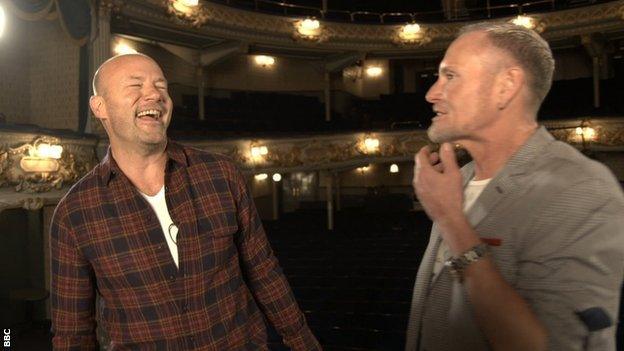
Shearer met Paul Gascoigne at Newcastle's Tyne Theatre before one of Gazza's solo talkshows
Alan Shearer's Euro 96: When Football Came Home |
|---|
Date: Sunday, 7 June Time: 22:30-23:30 BST, BBC One and BBC iPlayer |
This article was originally published in June 2016 to coincide with the first screening of Alan Shearer's Euro 96: When Football Came Home. The programme is being shown again on Sunday, 7 June on BBC One and BBC iPlayer at 22:30 BST as part of BBC Sport's Euros Rewind programming throughout June.
I listened to the 'Three Lions' song, external quite a few times while I was making my documentary about Euro 96, but not as often as I did during the tournament itself.
Paul Gascoigne used to wake us all up every morning at England's team hotel by opening his bedroom window and playing it on his CD player at full blast.
I am not sure the other guests appreciated it as much as we did, but we could always rely on Gazza to keep us entertained.
He is not just my old team-mate; he is my friend and he was the first player I went to meet when I began putting the programme together at the end of November 2015.
It was great to see him in such good form, looking well and laughing and joking.
As I expected, he had some classic stories about Euro 96, including some other tales of what he got up to at the hotel and also how he did not let some of the Scotland players forget the spectacular goal he scored against them at Wembley.
Paul Gascoigne's sublime Euro '96 goal against Scotland
That moment - and our famous "dentist's chair" celebration when I squirted water down his throat - was one of the three things that came up with everyone I met up with to talk about the tournament's 20th anniversary.
The others were our 4-1 win over the Netherlands and the "Three Lions" song, which seemed to have been the soundtrack to everyone's summer, not just us England players.
'We were under pressure at the start'
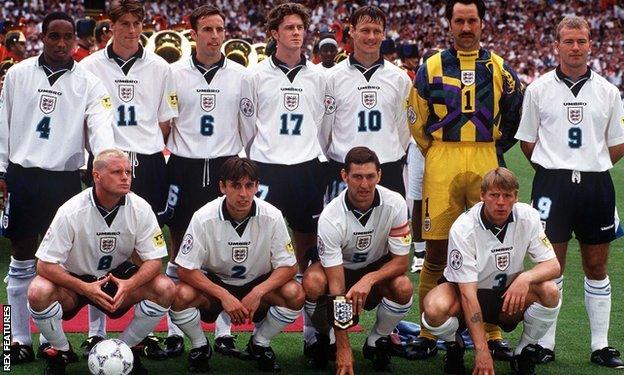
The England team that faced Switzerland in their opening match of Euro '96 - back row: Paul Ince, Darren Anderton, Gareth Southgate, Steve McManaman, Teddy Sheringham, David Seaman, Alan Shearer. Front row: Paul Gascoigne, Gary Neville, Tony Adams, Stuart Pearce
Euro 96 does not feel like 20 years ago, but it has been great to look back at it all and remember how the momentum built and built until it felt like the whole country was behind us.
Things were very different when the tournament started. There had been some incidents during our Far East tour a couple of weeks earlier that saw us heavily criticised by the media - including the original "dentist's chair" escapade in a Hong Kong nightclub.
So we were under pressure because of that, and also because of the expectation on us to perform well on our own patch.
Personally, I had something to prove. I ended up as top scorer at Euro 96 and it was the defining moment in my England career but I had not scored an international goal in 12 matches over 21 months before the tournament started.
However, the manager, Terry Venables, did not stop believing in me, and he was the same with every player in his squad.
People remember the great team spirit that England side had, and Terry's man-management skills were a big reason for that.
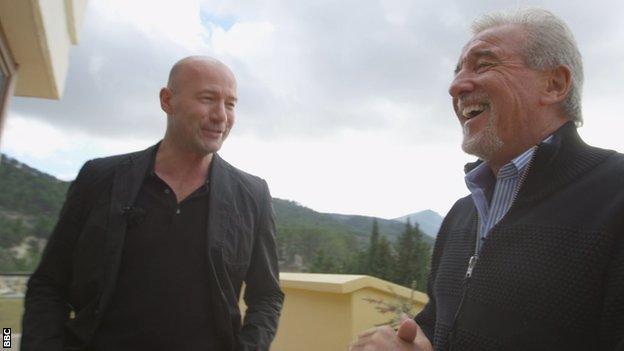
From manager to hotelier - Venables was England boss from 1994 to 1996 but now owns a hotel on the edge of the Font Roja National Park in Spain
I went over to Spain to speak to him for the documentary - he and his wife run a little boutique hotel near Alicante so he spends half the year over there.
It was great to catch up. He looks back at Euro 96 as the best time of his managerial career - which says a lot when you consider his time at Barcelona and everything he achieved.
'Beating the Dutch was when the euphoria kicked in'
We did not actually begin the tournament very well, drawing 1-1 with Switzerland, although I did ease some of the pressure that was on me by scoring.
Things started to go our way when we beat Scotland 2-0 but it was only after our final group game, against the Netherlands, that the euphoria really kicked in.
That night we beat the Dutch 4-1 at Wembley is probably my favourite memory of Euro 96.
It was the biggest and best atmosphere I experienced in an England shirt and it was also the most complete team performance I was part of for my country - everyone was a 10/10 that night.
I had not watched that game for a long time until I started putting the documentary together and what I did not remember was that myself and my strike partner Teddy Sheringham were both substituted with about 15 minutes to go.
We had both already scored two apiece so I reckon we could have had a hat-trick if we had been left on.
Along with Paul Ince, David Seaman and Gazza, Teddy was one of the players I met up with to reminisce - in his case over a round of golf.
Euro 96: Alan Shearer and Teddy Sheringham hit the golf course
But I also spoke to people who I did not encounter at the time - for example David Baddiel and Frank Skinner, who were behind the "Three Lions" song, and the BBC commentators John Motson and Barry Davies.
Motson and Davies are another reason why those England games are so fondly remembered by millions of people, not just the ones who were lucky enough to be at Wembley to see them.
But while their commentaries are part of the memory of that summer for everyone who was watching on TV, they were all new to me.
Even the videos we were shown after the matches to go through things did not have a commentary on them so I had never heard them until earlier this year. Listening to them, you realise these guys are fantastic at their job.
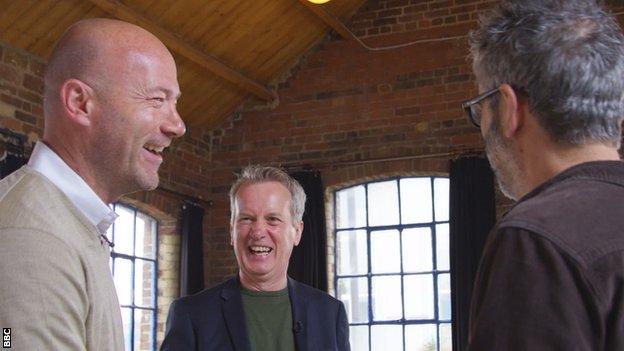
Comedians Frank Skinner and David Baddiel co-wrote 'Three Lions' with Ian Broudie of the Lightning Seeds. It topped the charts for two weeks in May and June 1996
'No regrets - just great memories'
It was after the Netherlands match that things really went crazy, and not just because we thought we could go on and win the tournament.
I remember popping out of the team hotel the next day, and going into Burnham town centre to get my hair cut - yes, believe it or not I did have hair back then.
When I got out of the taxi, there was a kind of street party going on. I had been reading about it in the newspapers but it was different to see it for myself - that was one of the times I realised what the atmosphere was like around the entire country.
We got past Spain in the quarter-finals on penalties but, of course, our shootout defeat by Germany in the semi-finals meant the tournament did not end the way we all wanted it to.
Yes, we could have won it, and obviously I wish we had won it, but there are no regrets - there can't be - just great memories.
Everyone I spoke to said "look, we gave it everything". When that happens, you cannot ask for any more. It was just not meant to be.
We had a lot of fun along the way, and the whole country did too, which I think is important.
Lots of things made Euro 96 special but the overriding reason it is remembered so fondly by so many people in England is that it kind of brought football and the nation together again.
Alan Shearer was speaking to BBC Sport's Chris Bevan.
- Published31 May 2016
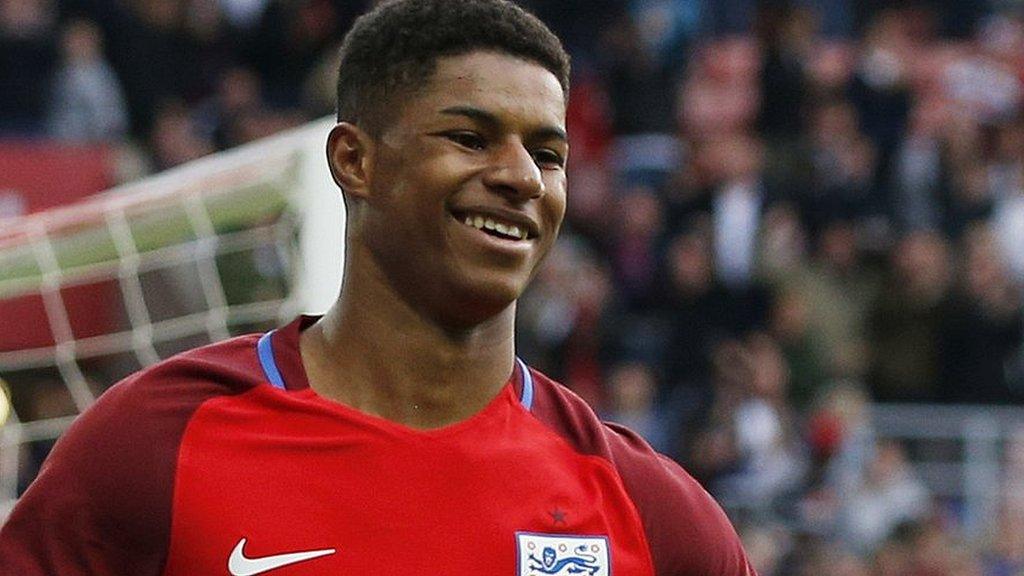
- Published31 May 2016
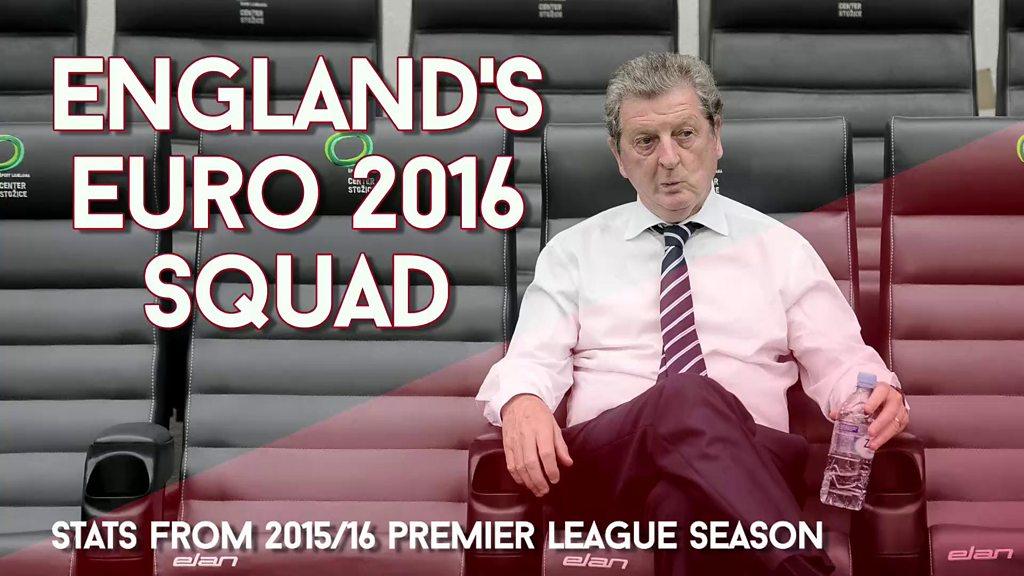
- Published20 June 2016

- Published13 May 2016
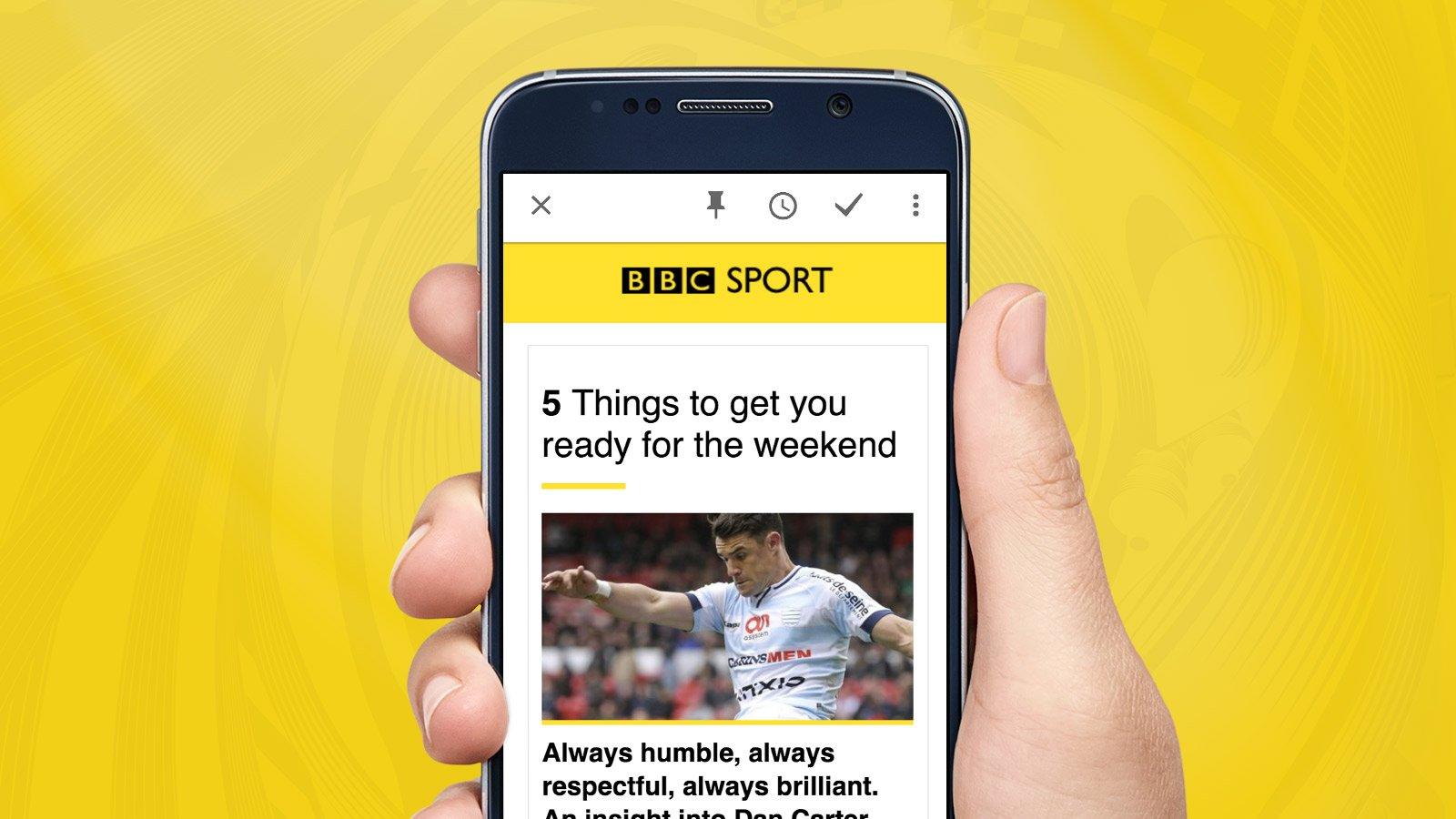
- Published7 June 2019
